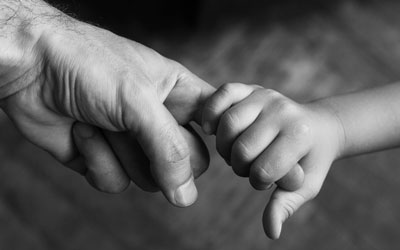Good Grief — The Path to Healing from a Loss
 Grief is a natural reaction to the loss we experience when someone we care about dies. As painful and difficult as it is, the grieving process is an important step in healing. There are no quick fixes but there are things you can do to help make coping easier.
Grief is a natural reaction to the loss we experience when someone we care about dies. As painful and difficult as it is, the grieving process is an important step in healing. There are no quick fixes but there are things you can do to help make coping easier.
1) Don’t rush yourself: Working through grief takes time. While you may be anxious for things to return to normal, you should give yourself time to mourn.
2) Stay connected: Spend time with friends and family. Being around people who care about you and that you care about can help. Resist the urge to isolate yourself. While it can be comforting to be around others who are experiencing similar feelings, be sure not to spend all your time with others who are grieving.
3) Take care of yourself: Eat properly and get enough sleep. Staying active can help you stay strong and put you in a better position to deal with your feelings. Exercise has been shown to cause metabolic changes that can help relieve sadness.
4) Do what you enjoy: If you have a hobby or activity that gives you pleasure, by all means, take part in it. Doing the things we enjoy can provide welcome relief. For some people, listening to music helps. For others, spending time outdoors, taking in a play, or reading a good book can be an escape.
5) Get help if you feel you need it: Sadness is perfectly normal, but if you feel you cannot attend to your normal activities or you are worried that you are not coping well, reach out. Talk with friends or family members, consult with your doctor or call a hotline.
The role of the funeral or memorial service in helping us cope with grief
Funerals have long been a staple ceremony in most cultures. There are many reasons for this. One of the most important reasons is that funerals, or ceremonies to memorialize someone who has died, give the living the chance to face the reality of loss. Funerals help us say goodbye and give us the chance to gather together with others who are experiencing similar feelings. Many experts believe that the simple act of sharing our grief with a community helps to lessen its intensity.
The Grieving Process
The Five Stages of Grief is one widely accepted model that defines how many people experience the process of grieving. Of course, everyone experiences grief differently so you may not feel each of the stages in exactly the way the model defines them. Understanding the model can help to remind you that your feelings are normal. According to the Five Stages, we must work through denial, anger, bargaining, depression, and acceptance.
Knowing that there is no magic formula to make your grief go away may not make you feel much better. But there are a few things to keep in mind that may help.
5 Important things to remember about grief
Everyone grieves differently: Despite what others may say, no one knows exactly how you feel. The grieving process is different for everyone. What you are feeling is unique to you. So give yourself a break. There is no defined way that you should be feeling at any particular time.
There is no timetable for grief: How quickly you start to feel like your old self will depend on many factors. Some people bounce back quickly while others need more time. If you feel uncomfortable with how long it is taking you to recover, consider seeking help. Support groups and professional grief counselors are available to help you understand what you are experiencing.
Grief is natural: There is nothing strange or unnatural about the grieving process. We all experience it at some time.
You are not alone: Spending time with those who care about you can offer comfort. Seek out friends and family who will understand what you are going through.
It will get better: It may take a while but over time you will be able to settle back into a normal routine. That doesn’t mean that you won’t continue to miss the person you have lost. But you will be able to remember them without the intense feelings that come with a recent loss.

Dad said when you're gone you're gone. He was wrong.
Rex Huppke: "My father was never what you'd call a people person. He preferred being on his own, puttering around his workshop or relaxing in the recliner, pondering the world's mysteries and searching for ideas no one else had considered." Click above to read more.

When your father dies, these words come to mind.
Mary Schmich: "When your father dies. Let the phrase settle for a moment. What words do you hear next? For anyone whose father has died, finishing the sentence is apt to be easier than reciting the alphabet." Click above to read more.

